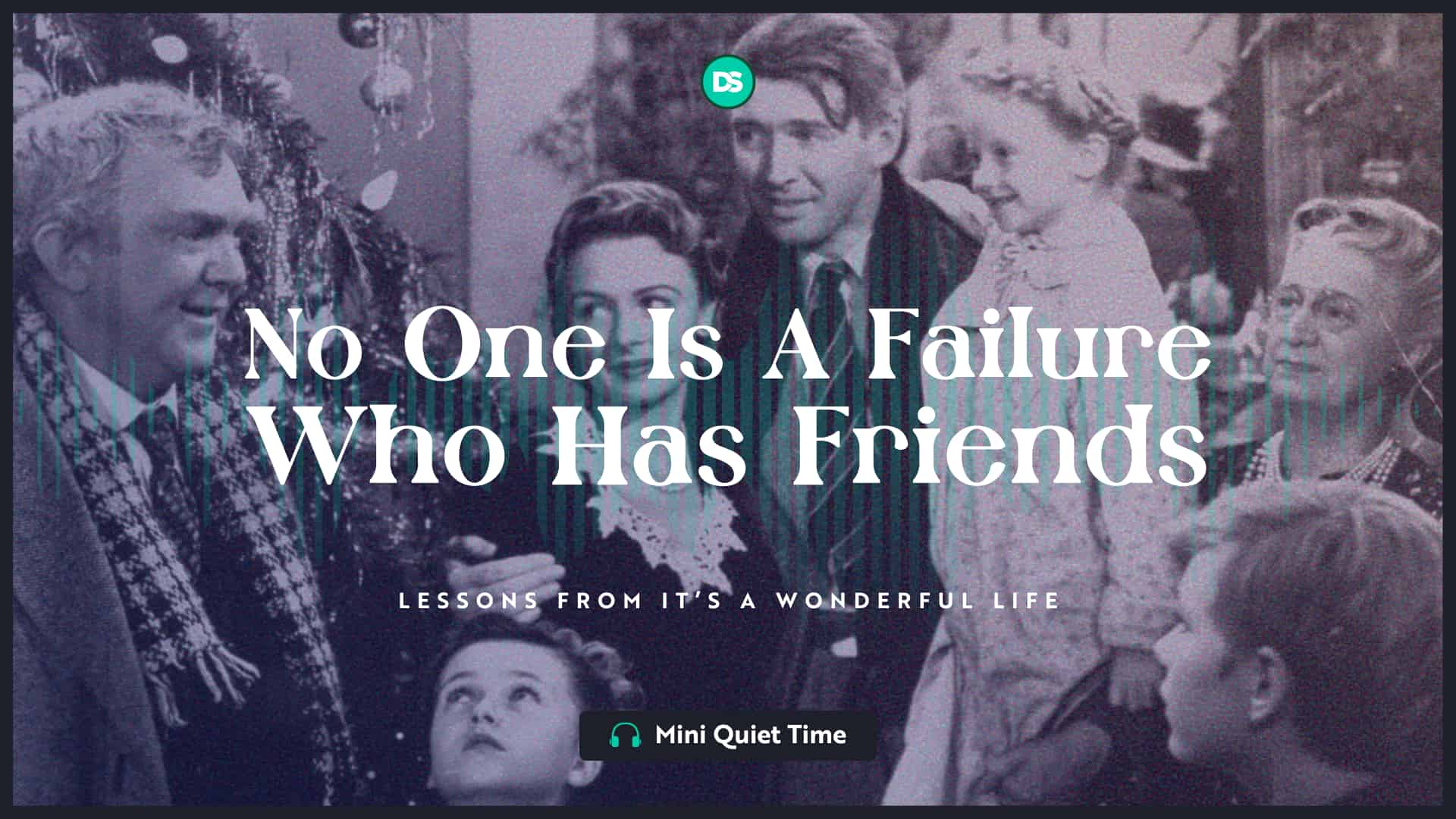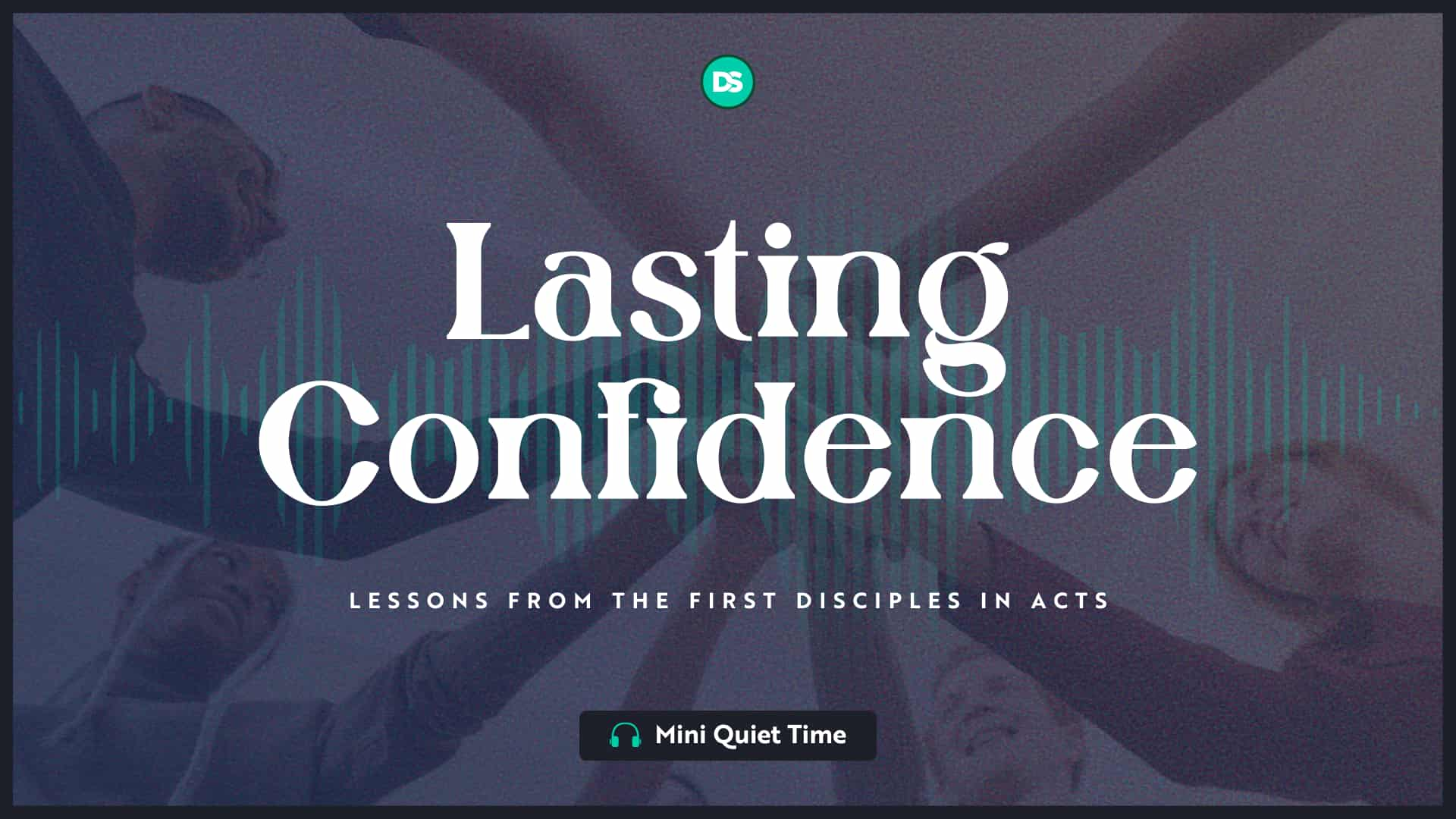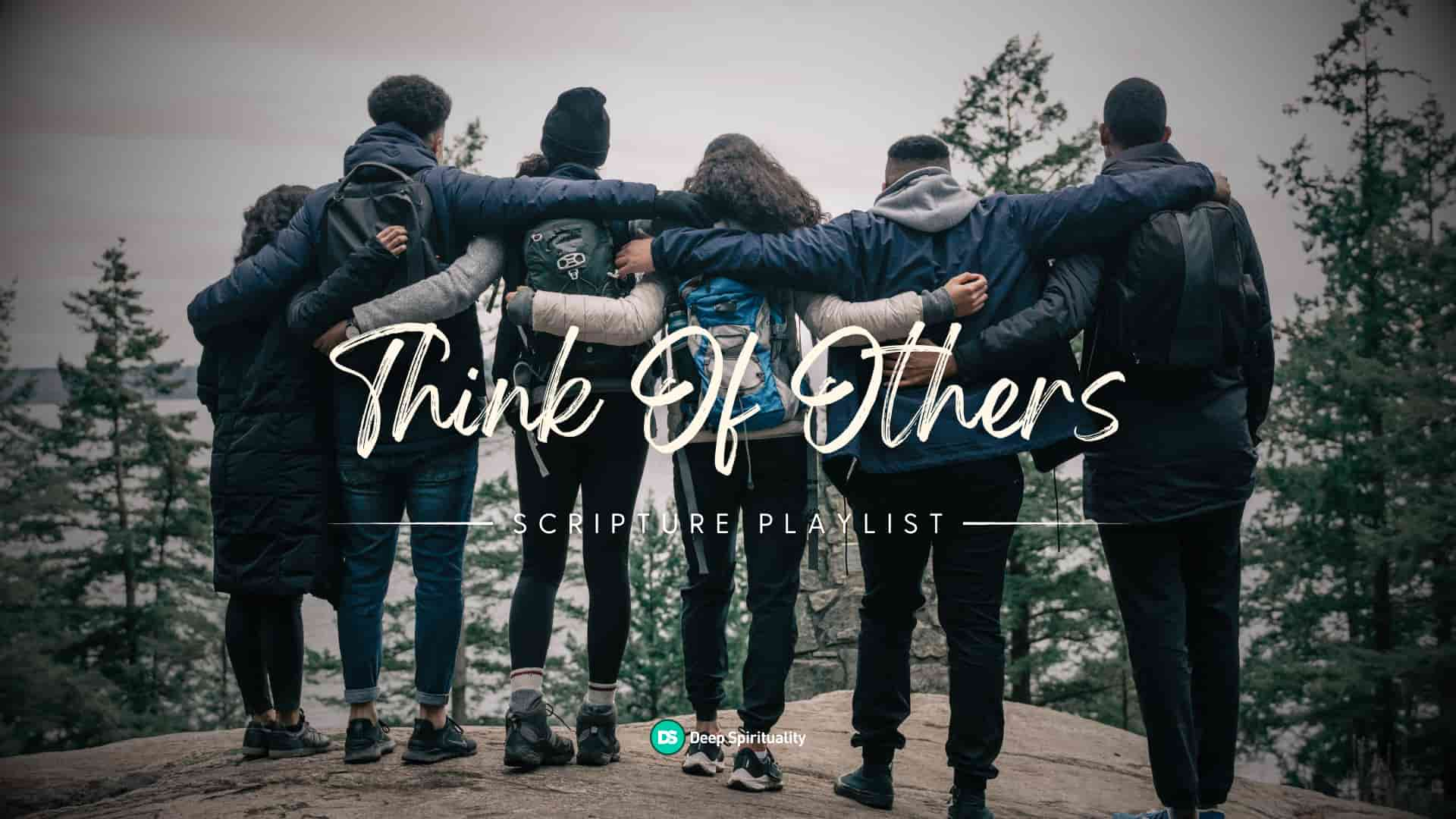“True compassion means not only feeling another’s pain but also being moved to help relieve it.”
Daniel Goleman
As Daniel Goleman, author of the book Emotional Intelligence, so eloquently explains, caring means taking action.
True compassion is not just having a feeling, but doing something about that feeling.
We find that although we like the idea of compassion, it is not always our intuitive response to other people’s pain. In fact, it is very easy to get so caught up in ourselves that we don’t even see the pain of the people around us.
Jesus saw people around him; he noticed who they were and what they were going through. This mindset determined how he felt about and interacted with people.
Jesus traveled through all the towns and villages of that area, teaching in the synagogues and announcing the Good News about the Kingdom. And he healed every kind of disease and illness. When he saw the crowds, he had compassion on them because they were confused and helpless, like sheep without a shepherd. He said to his disciples, “The harvest is great, but the workers are few. So pray to the Lord who is in charge of the harvest; ask him to send more workers into his fields.”
Matthew 9:35-38 NLT
Compassion starts with seeing the people around us. Rather than seeing people as competitors, burdens, or things to objectify or get validation from, Jesus saw people —and he saw the way the world had affected them.
The world we live in can be a difficult place, and Jesus understood that. The confusion and helplessness in the crowd of people around Jesus on this particular day still exists now, especially given the heightened stress we have all endured during the Covid-19 pandemic.
The US saw a historic increase in violent crime levels this year. The percentage of young people in America living with major depression has been increasing, and many of these young people do not receive the treatment they need.
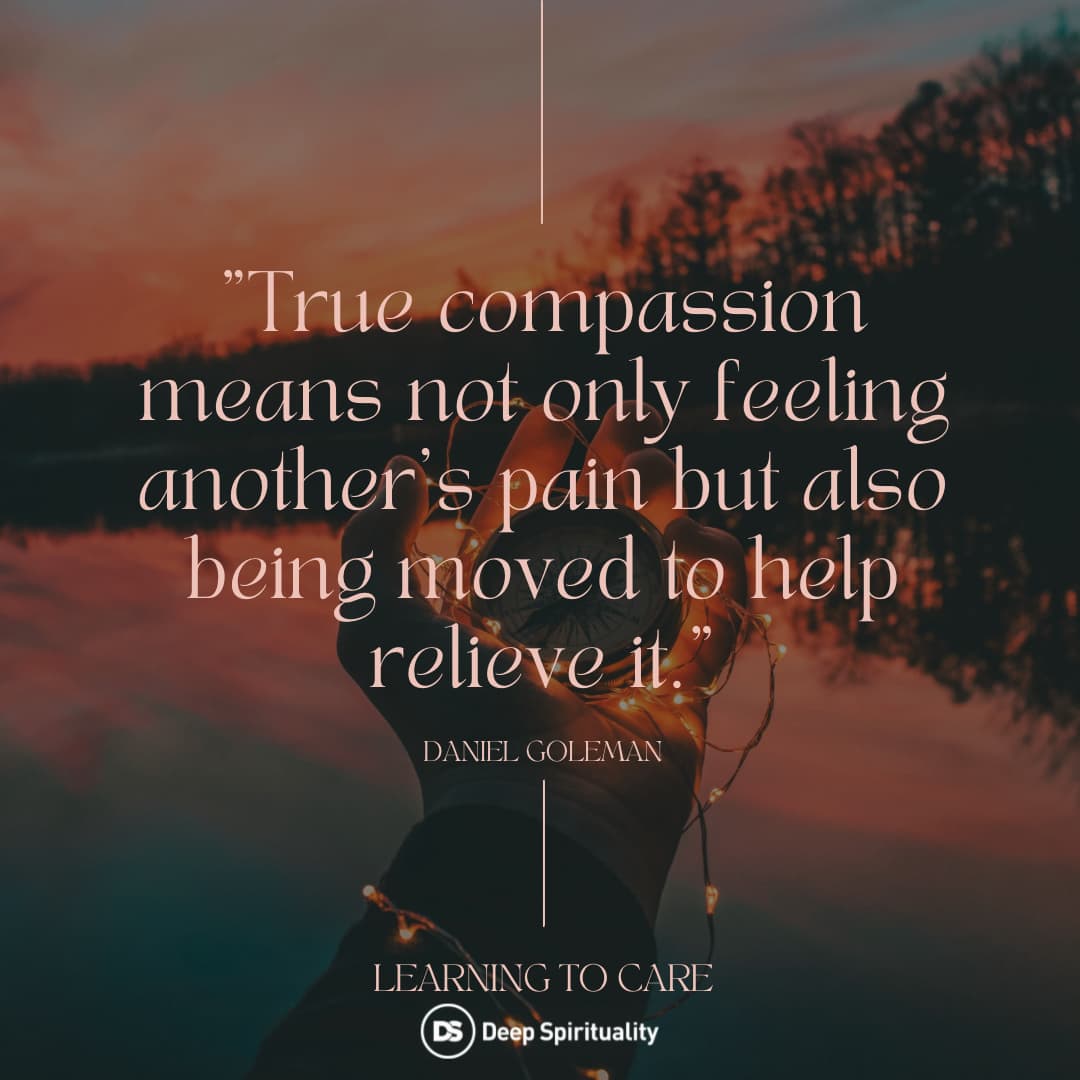
These are just a few examples of the pain we might notice if we really see the people around us.
As Jesus looked at the crowd around him, he saw the confusion and the helplessness they felt about burdens in their lives. He understood what they were feeling on the inside, then met what he saw with compassion.
To call ourselves Christians, we have to follow Jesus’ example and learn to see people around us with compassion too.
Why is it sometimes hard to be compassionate?
Most people probably wouldn’t argue with the idea that we need more compassion in the world. At the very least, most of us like the idea of compassion and hope people will extend it to us when we need it.
But in practice, being compassionate can be difficult. Why? Well, life is busy. We get overwhelmed by all the things we need to do and all the things we feel a lot about in our own lives. Sometimes without us even noticing, other people become supporting actors in a movie centered around ourselves.
Compassion requires us to stop thinking about ourselves—at least for a little bit—and that can be hard to do. Here are a few forms of self-centeredness we will have to become aware of and let go of if we want to grow in our compassion:
- Consumption with self: using up all your mental energy thinking about yourself. What does this say about me? What will people think of me if I do this? Did I say something dumb?
- Conceit: excessive pride in yourself, i.e. trying so hard to be strong and do everything right that you get critical of other people’s weaknesses.
- Competitiveness: having a strong desire to be more successful than others.
These are common struggles for each of us here on the Deep Spirituality editorial team. If you relate, then don’t worry—awareness is a good first step, and the Bible can teach us how to let go of these things and develop more compassion.
Jesus’ prayer in Matthew 9 was not just for the confused and helpless to get the help they needed, but for more workers—more people who will feel for those around them and do something to meet the needs they see.
Below are three ways we can learn to build better, more compassionate relationships and love like Jesus did.
Listen: Hearing someone besides myself
If you read the Gospels in the Bible, one thing you may see is how often Jesus noticed others. He saw a paralyzed man when no one else did, he noticed a woman giving generously even though she was poor, and asked a blind man what he truly wanted.
Jesus was good at loving others because he was good at listening to others. He didn’t try to interject his opinion. He wasn’t too busy in his own life and plans to slow down and notice someone else’s needs. He was quick to listen to others.
My dearest brothers and sisters, take this to heart: Be quick to listen, but slow to speak. And be slow to become angry, for human anger is never a legitimate tool to promote God’s righteous purpose.
James 1:19-20 TPT
Do you have any relationships in which it is difficult to get past an argument? Where there’s constantly conflict, distance, or bitterness?
In relationships and conversations, anger is almost always the easiest option. It is easier to react to what someone is saying than to really slow down and listen to them.
When we are angry or bitter, we can’t listen to the people around us because we are so consumed with how unfairly we have been treated, how someone has hurt us, and how rejected we feel.
Listening requires us to set ourselves and our emotions aside. We have to decide we will take the time to think about and hear someone besides ourselves. Because Jesus slowed down enough to listen, he was able to see past arguments and look into people’s hearts.
Jesus saw what was going on—not just the argument, but the deeper heart issues—so He found a child and had the child stand beside Him.
Luke 9:47 Voice
Because Jesus didn’t take things at face value, he was able to see past any argument or emotion and see deeper heart issues. The time he took to slow down enough to notice others and what they must have been feeling made him not only able to hear them, but truly listen.
To have compassion, we can learn from Jesus by slowing down, setting our own emotions aside, looking past the superficial to see people’s hearts, and choosing to listen.
Pause and reflect
- Ask the people in your life if you are a good listener. What are your strengths and what are some ways you could grow to better listen to people around you?
Feel: Empathizing with others
When Jesus looked at Mary and saw her weeping at his feet, and all her friends who were with her grieving, he shuddered with emotion and was deeply moved with tenderness and compassion. He said to them, “Where did you bury him?” “Lord, come with us and we’ll show you,” they replied. Then tears streamed down Jesus’ face. Seeing Jesus weep caused many of the mourners to say, “Look how much he loved Lazarus.”
John 11:33-36 TPT
If you read this whole story in John 11, you will find that Lazarus—Jesus’ friend and Mary’s brother—had recently passed away. Jesus knew ahead of time that he was going to raise him from the dead.
So if he knew Lazarus was going to be alive again soon, why did he feel such strong and deep sadness in this passage? Because Mary felt strong and deep sadness.
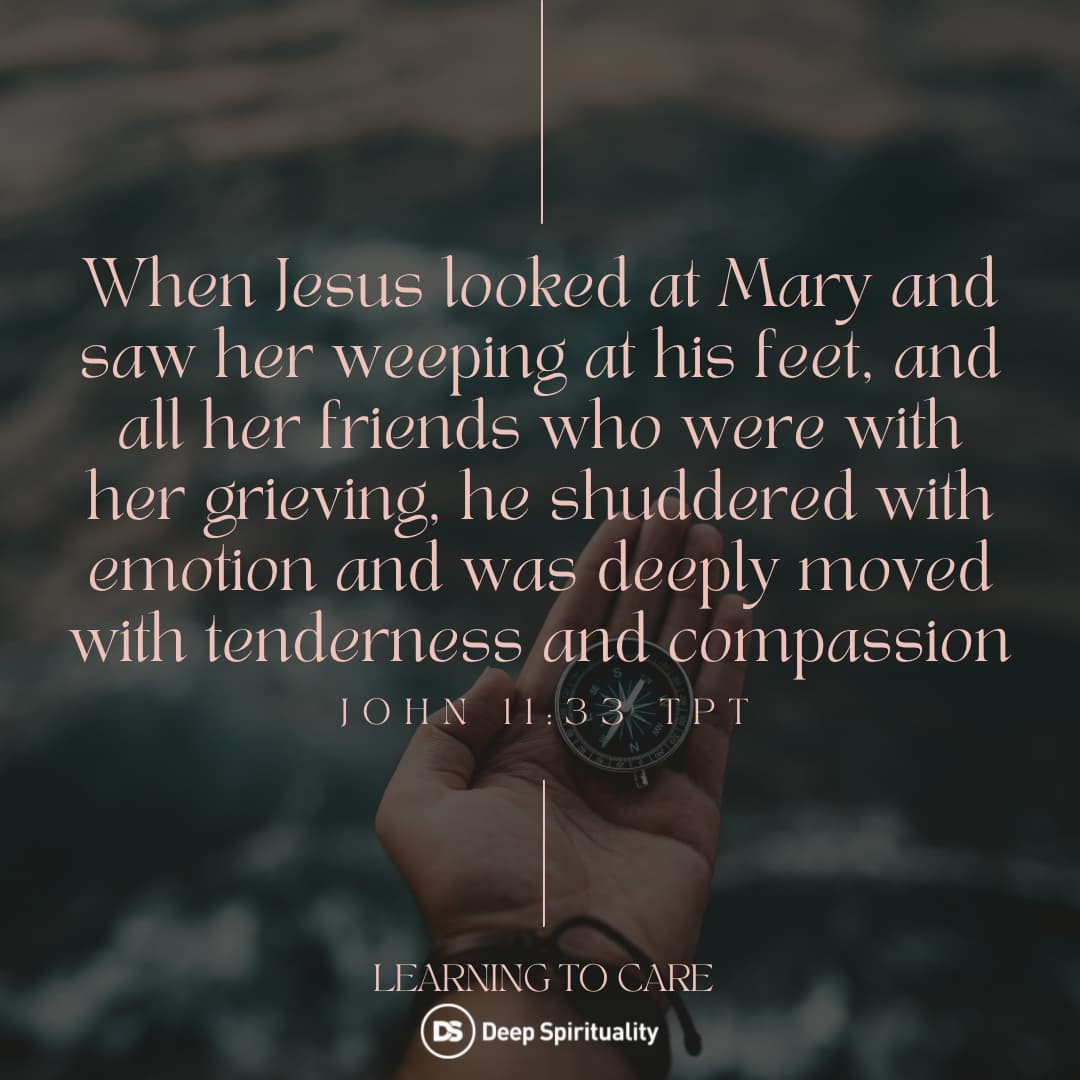
In that moment, it didn’t matter what Jesus was going to do. He saw Mary in pain, and so he felt her pain with her, and he felt it so strongly it affected him physically.
When was the last time a strong emotion you felt was centered around someone else?
An essential component of compassion is allowing yourself to feel what others feel. It is not enough to simply notice other people’s needs if we don’t feel with them. Though we will talk later about the importance of action, just having a serving behavior doesn’t do much if it’s devoid of emotion.
Have you ever done seemingly loving acts for someone in your life (you did the dishes, you made them their favorite food, and maybe you even got them a gift) but they still express not feeling loved by you? This may be because you aren’t allowing yourself to feel for them.
When was the last time a strong emotion you felt was centered around someone else?
Empathy means setting aside our own emotions and channeling them toward another person. Even if we aren’t personally affected by what they’re going through, we can put ourselves in their shoes and allow ourselves to feel what they feel. This doesn’t just mean pain and sadness, but could be joy and excitement too!
Take us into your hearts; love us as we love you. You have nothing to fear. We have hurt no one, ruined no one, swindled no one. I am not writing these things to condemn you, as I said before. Our hearts embrace you, so we stand beside you whether facing life or death. I am completely confident and incredibly proud of you. Even in all this turbulence I am at peace— I am overflowing with joy.
2 Corinthians 7:2-4 Voice
When our hearts fully embrace others, we will feel their highest highs and lowest lows with them. If you want to make a difference in someone’s life, the answer is not having the right thing to say or doing the perfect task. It is in getting over yourself long enough to feel for them and with them. It’s going through life with them.
Pause and reflect
- How easy or difficult is it for you to feel what others feel? Why?
- What percentage of your emotions are centered around yourself versus centered around others?
Action: Having compassion toward others
But, as we learned from Daniel Goleman in the beginning of this devotional, it is not enough to feel for others. What matters is what you do about it.
While empathy is the willingness to feel the pain of others, compassion is the willingness to do something about the pain of others. To build relationships like Jesus did, you need both.
Then Jesus spoke to his disciples. He said, “Whoever wants to be my disciple must say no to themselves. They must pick up their cross and follow me. Whoever wants to save their life will lose it. But whoever loses their life for me will find it. What good is it if someone gains the whole world but loses their soul? Or what can anyone trade for their soul?
Matthew 16:24-26 NIRV
How much of your mind is focused on yourself during the day? Following Jesus means that we say no to ourselves, and yes to loving others. When our goal is to “gain the whole world”—all the status and achievement, wealth and attention, comfort and pleasure the world has to offer—we will lose our true purpose of loving God and loving others.
There is nothing we can gain for ourselves that is as powerful, important, or satisfying as living out our purpose in this world. When we choose to crucify the parts of ourselves that are self-centered (and self-piteous, self-glorifying, self-indulgent, self-doubting … you get the idea) we will find room in our hearts to discover a purpose bigger than ourselves.
Below are a few common ways the “self” can get in the way of us living out God’s purpose each day, along with some choices we can make to say no to the “self” and choose to love instead. Pick one or two that stick out the most to you and decide to take them on in your relationships this week!
| Crucify Self-Centeredness | Listen: Hear someone besides yourself. |
| Crucify Self-Pity | Feel: Empathize with others instead of feeling sorry for yourself. |
| Crucify Self-Glory | Action: Compassion towards others instead of promoting yourself. |
| Crucify Self-Indulgence | Sacrifice: Love means doing things for others, not just yourself. |
| Crucify Self-Doubt | Serve: Love helps others rather than envying or competing. |
In closing, stop and think about how much good we each could do in the world if we spent just 10 minutes a day thinking about someone and deciding to do one thing that would benefit them.
How different would the world be if we each imitated Jesus and took action to make a difference in someone’s life? This doesn’t mean thinking about how they affect us or how we feel about them, but who they are, what they are going through, what we can do to care for them, and then deciding to take action to love them.
This is how Jesus lived, and he changed the world. What could you do if you did the same?


